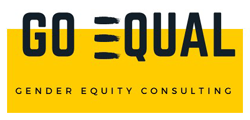Go Equal – ANU Gender Institute Joint Panel on Gender Justice in a Post-COVID World
Go Equal has co-hosted a Panel titled “Gender Justice in a Post-Covid World: Reclaiming, Revisioning and Renewing” with the Australian National University’s Gender Institute on Friday 27 May 2022 at ANU, Canberra. Professor Fiona Jenkins, Coordinator, ANU Gender Institute and Dr Joyce Das, Executive Director and Founder, Go Equal jointly inaugurated the Panel. Three prolific gender experts spoke in the Panel:
- Dr Maria Tanyag, Lecturer, ANU Coral Bell School
- Associate Professor Rebecca Monson, ANU College of Law
- Dr Faustina Pereira, Senior Fellow, Centre for Peace and Justice, and Professor, BRAC University and Senior Advisor, Go Equal
The Panel was chaired by Sally Moyle, Honorary Associate Professor, ANU Gender Institute.
Panel Abstract:
Very early into the Covid-19 pandemic two years ago, an unfortunate set of patterns began to emerge, which today we recognise as settled facts. We now know that women and girls, in particular, and those marginalised because of their gender identities, were at the forefront of violence, inequality and discrimination as a direct consequence of the policies and practices adopted by states in their attempt to tackle the health crisis, ncludingg through lockdowns. Many of the measures taken invariably forced citizens into situations that exacerbated ongoing abuse, or into situations that gave rise to new forms of abuse. We know that certain segments of the population, almost uniformly across the globe, suffered and continue to suffer the impact of the pandemic disproportionately – economically and socially.
In Asia-Pacific alone, for example, the closure of schools for extended periods has had a critical bearing not just on access to education and learning outcomes. It has clearly exacerbated pre-existing gender inequalities and discriminatory gender norms, to the point of setting off a domino effect on increased child marriages and forced marriages; and rollback of gains across the spectrum including access to safe and legal reproductive rights and health services.
Again, data from rapid gender assessment surveys investigating the socioeconomic consequences of COVID-19 on women’s and men’s lives draws a sobering picture. Women have more likely to experience loss in paid work hours than men. While women and men are doing more unpaid domestic and care work due to the pandemic, women take on the larger share. Moreover, the emotional and mental health impact of the pandemic is disproportionately falling on women.
While all of this is simply a fractional glimpse of a much larger, deeper and more complex scenario, it gives a strong sense of the multifaceted ways in which the long road to gender justice, from the local to global, needs to be addressed.
Already, we have stories and examples of how adversity has given rise to innovation and opportunities to “build back better.” How can we then, as a global community of feminists and gender justice advocates, reclaim lost ground, re-envision the path forward and renew our resolve, our tactics and our tools, for the challenges ahead?
Quite early into the Pandemic, Arundhati Roy, in her essay, The Pandemic is a Portal, encouraged us to look at the pandemic as an opportunity to break with our past and imagine the world anew. She suggested we see it as a portal, a gateway between one world and the next, “We can choose to walk through it, dragging the carcasses of our prejudice and hatred, our avarice, our data banks and dead ideas, our dead rivers and smoky skies behind us. Or we can walk through lightly, with little luggage, ready to imagine another world. And ready to fight for it.”
Let us take this opportunity to think together, gather our collective ideas, lessons and strengths, and carve a new post-pandemic world where justice and dignity move from the periphery to the centre of our human discourse.
Listen to the Podcast here : https://youtu.be/Rml0kXdfB4g]
- YEAR May 2022
- CATEGORY Our Projects , Recent Highlights
- TAGS

